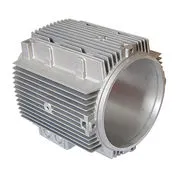Mobile:+86-311-808-126-83
Email:info@ydcastings.com
Exploring the Benefits of SS304 Casting for Industrial Applications and Manufacturing Solutions
SS 304 Casting An Overview of Properties and Applications
SS 304, commonly known as AISI 304 stainless steel, is one of the most versatile and widely used stainless steel alloys in the world. Its exceptional strength, corrosion resistance, and formability make it a popular choice for various applications across different industries. SS 304 is particularly notable for its casting properties, which enhance its usability in complex shapes and structures. This article delves into the characteristics, benefits, and applications of SS 304 casting.
Chemical Composition and Properties
SS 304 is an austenitic stainless steel alloy primarily composed of iron, chromium (18%), and nickel (8%). These key elements confer significant advantages to the alloy, such as superior corrosion resistance and good mechanical properties. The presence of chromium forms a passive layer of chromium oxide on the surface, providing protection against oxidation and corrosion. Meanwhile, nickel enhances the overall toughness and ductility of the alloy, allowing it to handle stress without fracturing.
The mechanical properties of SS 304 are impressive, with a tensile strength typically ranging from 480 to 620 MPa and a yield strength of around 215 MPa. The alloy's high elongation percentage (over 40%) indicates its ability to deform without breaking, which is crucial for casting applications where complex shapes are required.
Casting Process
Casting is one of the most effective methods for shaping metals, and SS 304 is amenable to various casting processes, including sand casting, investment casting, and die casting. Each method has its advantages and is selected based on the requirements of the application.
1. Sand Casting This traditional technique involves creating a mold from sand, where molten SS 304 is poured in. Sand casting is beneficial for creating large, robust components and is cost-effective for low to medium production runs.
2. Investment Casting Known for its precision, investment casting involves creating a wax mold coated with a ceramic shell. Once the shell hardens, the wax is melted away, and molten SS 304 is poured in. This method is ideal for intricate designs and high-precision requirements.
ss 304 casting

3. Die Casting In die casting, molten metal is forced into a mold under high pressure, enabling the production of numerous identical parts. While less common for stainless steel, certain grades and applications may leverage this technique for SS 304.
Applications of SS 304 Casting
Due to its inherent properties, SS 304 casting finds applications across a multitude of industries
- Food and Beverage Industry The non-reactive nature of SS 304 makes it an ideal material for food processing equipment, such as tanks, valves, and piping systems. Its ability to withstand frequent cleaning and exposure to corrosive substances like acids is vital for maintaining hygiene in food production.
- Chemical Processing SS 304's resistance to oxidation and corrosion enables its use in the production and storage of chemicals, pharmaceuticals, and petrochemicals. Tanks, reactors, and piping made from SS 304 ensure safe and reliable handling of various substances.
- Marine Applications Its resilience against harsh marine environments allows SS 304 to be employed in shipbuilding and offshore structures. Common applications include boat fittings, marine hardware, and various equipment exposed to saltwater.
- Architecture and Construction SS 304 is favored for architectural applications due to its aesthetic appeal and ease of maintenance. It is often used in facades, handrails, and interior design, providing a modern look while ensuring durability.
Conclusion
SS 304 casting represents a crucial component in modern manufacturing and engineering, owing to its exceptional properties and versatility. Its applications span across various industries, underscoring the importance of stainless steel in creating enduring, high-performance products. As technology advances and the demand for complex components continues to grow, the significance of SS 304 casting in meeting those needs will undoubtedly remain paramount. Whether utilized in food processing, chemical production, maritime activities, or architectural endeavors, SS 304 continues to play a vital role in contemporary industrial practices.
-
Impeller Technology That Powers Precision in Pump SystemsNewsMay.22,2025
-
Valve Durability Begins with Quality Cast Iron ComponentsNewsMay.22,2025
-
Performance Cooling with Advanced Automobile Water Pump SolutionsNewsMay.22,2025
-
How Motor Housing and Oil Pans Shape Engine PerformanceNewsMay.22,2025
-
How Metal Castings Drive Modern Manufacturing EfficiencyNewsMay.22,2025
-
Exploring the Engineering Behind Valve Body CastingsNewsMay.22,2025











